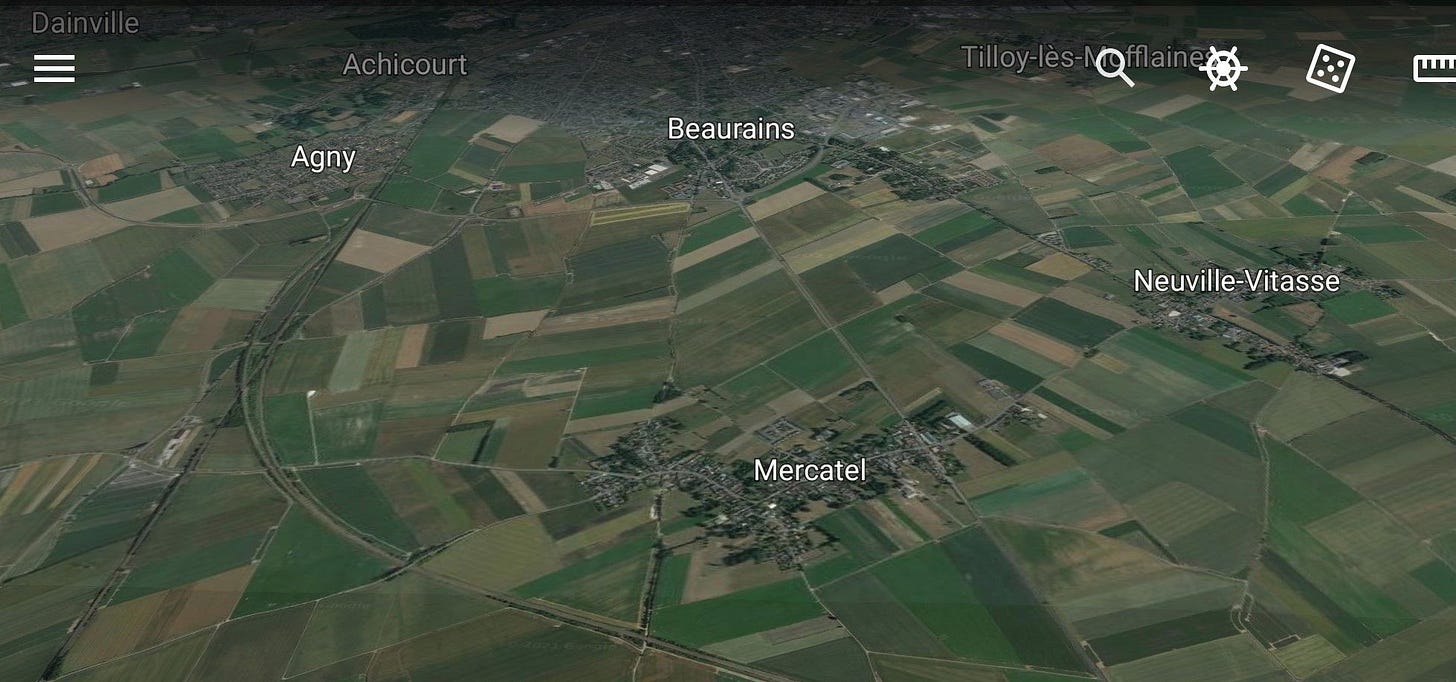This is why we have hobbies 💎 Issue #52
Plus: A philosopher mathematician tell us like it is and an easier way to go back in time.
Happy Friday 👋
What’s up? 🎲
I’ve been back to the hobby of wargaming. Wargames are like board games in the sense that you are moving cardboard pieces around to be the first to complete a given objective. The difference is in the theme. 99% of the time you are playing one of the sides in a battle, campaign, or even entire war.
You are not just having fun with a game, you are also learning details of history, strategy, tactics, even human behavior, which would be very hard to get through any other, more available, medium, like books, movies, or school history lessons. See, it’s not the availability of those details that contain the gold, because those you get consuming media, but in placing you in the shoes of soldiers and field marshals of the past, giving you the same scenario and options, and let you discover what would you do in that position. That discovery is the gold.
The game I’ve been playing is called Counter-Attack: The Battle of Arras, 1940. It’s about a “small” battle in size and fame of WWII, fought precisely 81 years ago to the day (it went on during the afternoon)! But without playing this I would never learn that, maybe, it’s one of the most decisive battles of the war.
Why?
The short version: it might be the reason why more than 300 thousand allied soldiers managed to wait for, and catch, their boat to England as if they were not surrounded by the German army wanting to “stop” that escape. Basically the plot of the movie Dunkirk.
The long version: This counter-attack that caught the German blitzkrieg advance by surprise didn’t gain any new territory or inflicted significant damage, but showed how just advancing like crazy with your tanks and leaving the rest of the army lagging behind might leave your flanks and rear exposed to serious punishment. This is probably one of the factors that led Hitler and his advisors to give the, now famous, halt order 3 days later and stop everyone on their tracks (literally). Without that order, there are no 300+ thousand soldiers that escaped to fight another day, and without those, the war, and the movie, might have had a different finale.
Now, playing these games today, with the technologies available is even more of a treat. I can start the game by having complete accounts of the plans and movements of troops of that day:
Then I have the map of the game:
The game continued and I took some photos of the details as it went on…
The thing is I was not aware of all those lines of the first picture and yet the game led some of the units to follow the same historic path. But now I know why and how.
And then you have satellite views of the battle locations…
…and street view of the little village of Mercatel!
These technologies we have can provide way more levels of engagement with a wargame than ever before. Seeing this little village as the tanks from the 4th Royal Tank Regiment would have seen it 81 years ago can give one perspectives that few history lessons can rival.
And that’s, like I said, gold.
New to me 💡
12 Life Lessons From Mathematician and Philosopher Gian-Carlo Rota | 11 min read
📐 I have a guess that maybe if these were life lessons from a standard mathematician or philosopher, they would not be as attractive as they are coming from someone exhibiting the badge of both life paths. Even if they were verbatim the same. It’s like Clark Kent and Superman: that only works because of the contrasting mix. “When we have a conversation, read a book, or listen to a talk, the sad fact is that we are unlikely to remember much of it even a few hours later, let alone years after the event. Even if we enjoyed and valued it, only a small part will stick in our memory. So when you’re communicating with people, try to be conscious about giving them something to take home. Choose a memorable line or idea, create a visual image, or use humor in your work.”
Building Products | 7 min read
🧱 Another article with lessons. Oops! This time about building stuff on Facebook and it’s divided into four major sections: framing, execution, measuring success, and team dynamics. “Understand what you’re uniquely good at, and what your teammates are uniquely good at. Then, divvy up team responsibilities in a way that acknowledges those strengths.” Just a “small” challenge for those wanting to strengthen their impact and of those working with them.
Please help me grow this newsletter! I’d love if you shared it with your more curious friends.
A most influencing tweet 📘


This app I found 📅
Vandal | A browser extension that helps you navigate back in time without leaving your current tab. Great if you want to be surprised at how bad your favorite website looked in 2002.
This week in a gif 💻
High note ⚡
Last issue most clicked link was My dad led an organization of over 300,000 employees. (thread).
I hope you enjoyed these last minutes as much as me putting this together.
You can also show some love by clicking that tiny ❤️ at the top of the email. It would help spread the word. Or you can provide candy bars 🍫.
If you are one of those friends and someone shared this with you, you are in luck, buy them a beer next time you are together, and meanwhile, you can subscribe to This Week’s Worth here:
Until next week,
Filipe







